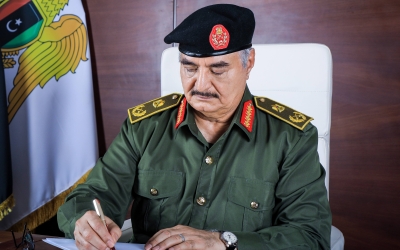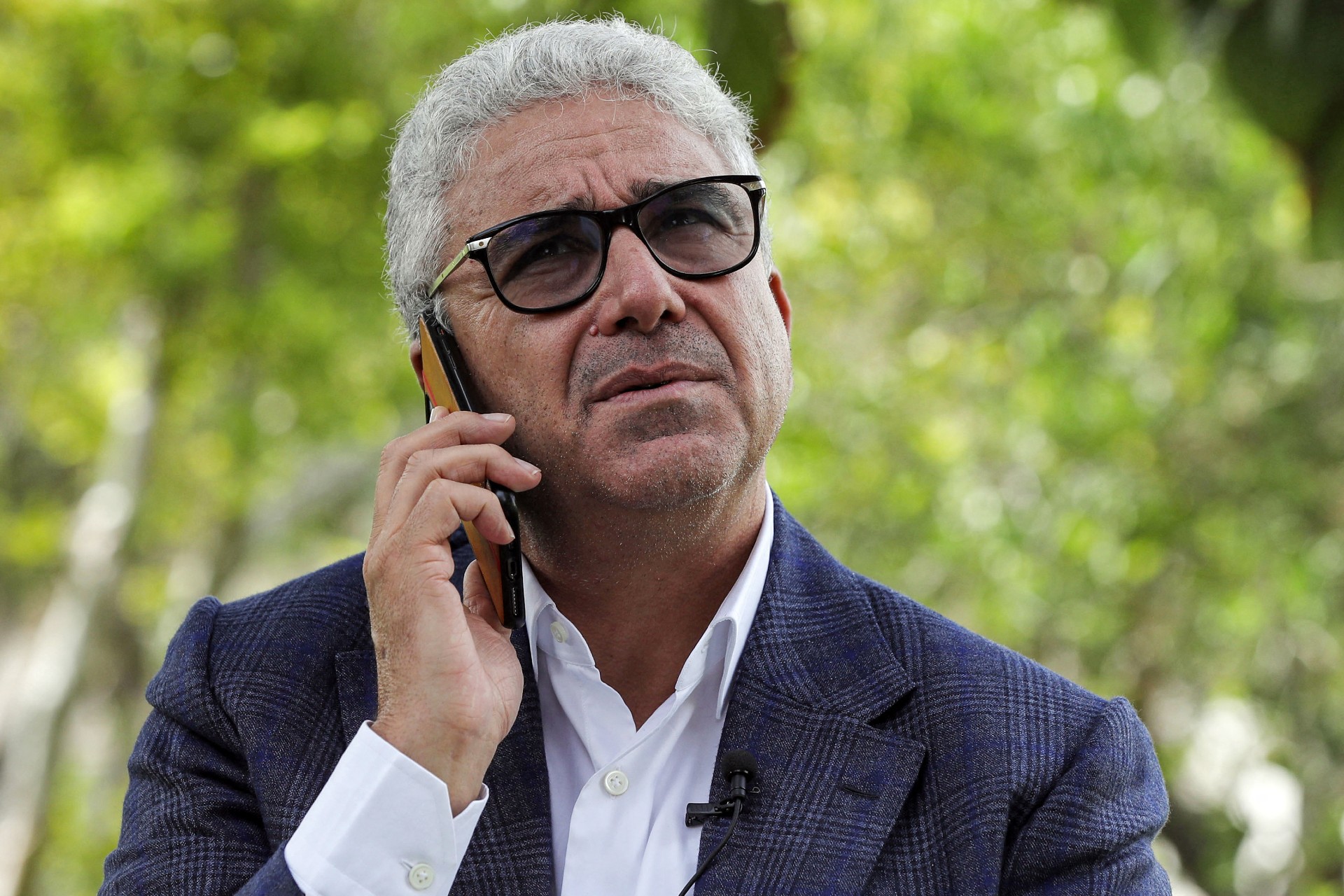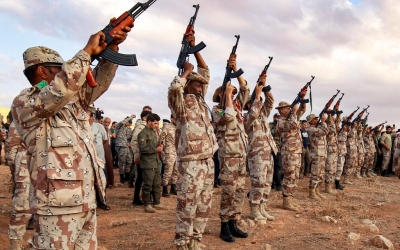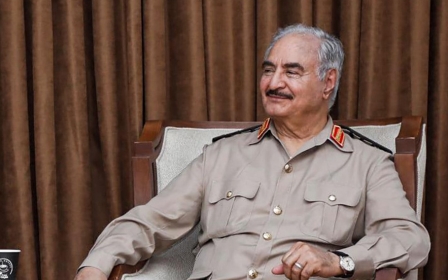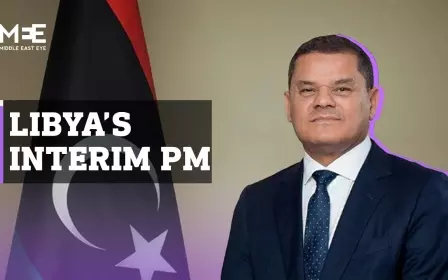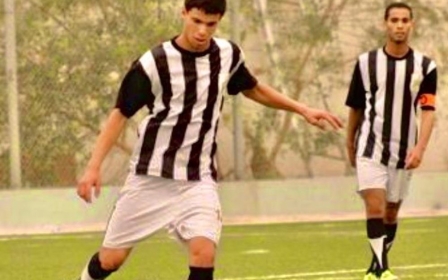Libya hoped its elections could heal the country. Instead, they could make it worse
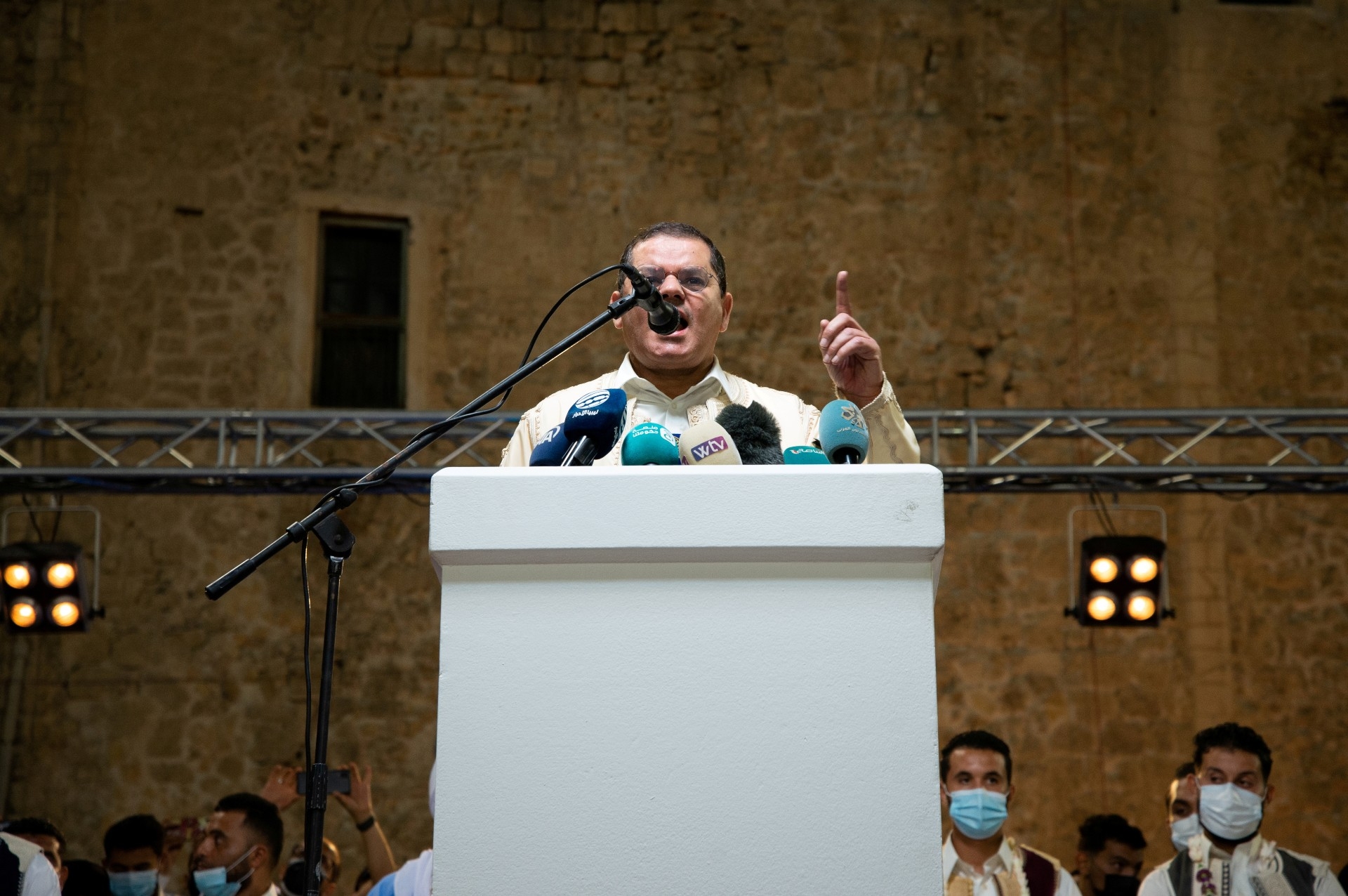
With Libya still mired in crisis, all eyes are turned towards the elections that are due on 24 December 2021. The international community, which engineered the election timetable as part of its roadmap, is particularly fixated on getting to these polls on time.
Many Libyans are also clamouring for the elections to take place in the hopes that they will finally set the country on a new path.
'Aquila isn’t wanted in the west or the east. His time has gone'
- High-placed eastern source
Yet there is no guarantee that these polls will go ahead as planned. There are many hurdles still to be overcome, including agreeing upon a proper legislative and constitutional framework.
Despite months of wrangling, this all-important step has yet to be settled fully. With the clock ticking, sticking to the UN-backed timetable remains challenging.
More importantly, if and when the elections do take place, they are unlikely to draw a line under Libya’s protracted crisis.
Elections have not served post-Gaddafi Libya well thus far, and previous solutions contrived by the international community have proved all but disastrous. This includes the recently formed Government of National Unity (GNU), which like its UN-born predecessor, was meant to serve as a consensus body, but has proved to be anything but.
With the country more divided than ever, there is little to suggest that new elections will heal the rifts that have ripped the country apart. They could well make things worse.
Battle for the presidency
Although both legislative and presidential elections are planned, it is the presidential elections - Libya’s first ever - that are causing by far the greatest stir.
Official nominations are not due until mid-November, but several prominent figures have already indicated they may put themselves forwards, including former ambassador to the UAE, Aref Nayed, who has made clear his intention to throw his hat in the ring.
Yet, with regional and political divisions so entrenched, it is difficult to see how any of these figures will be able to transcend the divide and prove acceptable to all.
This includes Khalifa Haftar, the head of the Libyan National Army (LNA), who is the main contender in the east. While the head of the House of Representatives, Aquila Saleh, is reportedly poised to nominate himself, his constituency is extremely limited.
As one high-placed eastern source who wished to remain anonymous observed to MEE: “Aquila isn’t wanted in the west or the east. His time has gone.”
Haftar, by contrast, has broader backing in the east. Although he has his share of detractors in the eastern region, he can at least bank on solid support from the LNA, as well as from some sections of the big Cyrenaican tribes, who despite their misgivings about his ill-fated 2019-2020 campaign against Tripoli have remained largely loyal.
Yet Haftar will struggle to win votes beyond Cyrenaica and some parts of the south. Although he has been at pains to present himself as the man for all Libya, Haftar remains a red line for many factions in the west.
Former defence minister Mehdi al-Barghathi encapsulated the feeling of many when he told MEE: “There can be no stability for Libya while Haftar is around.” Furthermore, the support Haftar could once muster in certain western areas such as Zintan, Tarhuna and some coastal towns largely dissipated following his war on Tripoli.
Haftar has little hope therefore of reaching into the west. This is of critical importance given that the vast bulk of Libya’s population lives in Tripolitania and the president is to be elected by majority vote.
Western candidates
Yet it won’t be plain sailing for candidates from the west either. While the population in western Libya may outweigh that of the east and the south, Tripolitania is divided. The vote in the west will likely be split therefore between a handful of candidates, who have little to distinguish their political platforms or ideological outlooks.
'Despite all Bashagha’s electioneering, he cannot even put up his picture in the east'
- Benghazi source
This includes former interior minister Fathi Bashagha. A Misratan, Bashagha is popular among certain western factions, although while in office he locked horns with powerful armed groups in Tripoli who will likely oppose his candidacy.
However, he is one of the stronger candidates in the west who has worked hard to gain international support. His candidacy will also be assisted by past efforts to engage with the east, and with more recent attempts to win over tribes associated with the former regime.
As Libyan researcher and academic, Abdeljawad Badeen, told MEE: “Bashagha has sought to bridge the gap between the regions. He at least has a vision and is the only one with the capacity to reach out.” However, this view is not shared by all. “Despite all Bashagha’s electioneering, he cannot even put up his picture in the east,” one notable from Benghazi said.
Another potential western frontrunner is former deputy of the Presidency Council, Ahmed Meitig, who is also from Misrata. While sometimes dismissed as little more than a businessman, Meitig has a degree of popularity in the west, although one prominent notable told MEE: "His support doesn’t extend beyond Misrata, and even there, he has a competitor."
Although he scored a notable success in September 2020 by brokering a deal with the LNA to lift the oil blockade, in the minds of those in the east, he, like Bashagha, is part of the pro-Turkey, pro-revolutionary camp that has ruled Libya since 2014 and deliberately marginalised the east.
Then there is current prime minister, Abdulhamid Dbeibah, also from Misrata. Although, as part of the current government, Dbeibah is not meant to stand, speculation is growing that he may put himself forward. Dbeibah’s recent promises to raise public sector wages and dole out payments, including for weddings, have been interpreted by some as evidence of electioneering.
Yet, while such gestures may be winning him popularity in the west, he is not looked upon kindly in the east, where the push to hold presidential elections is bound up in a desire to ensure Dbeibah cannot overstay his mandate. Moreover, even eastern members of his own government issued a statement in October accusing him of unilateral and “dictatorial” decision-making.
Aside from the fact that these well-known western figures will potentially be competing against each other, none of them will be accepted by the east or large areas of the south. Indeed, they will be sorely lacking in legitimacy outside of their own constituencies. It is for this reason that they have been working so hard to gain international acceptance and backing.
Other potential nominees
There are a number of other potential names in the hat, including Gaddafi’s son Saif al-Islam. Yet while he may have the support of some Gaddafi loyalists, his bid will not travel far, not least because of the International Criminal Court ruling against him, but also because he is part of an ugly past. Moreover, the ex-regime constituency is not homogenous, hence the attempts by both camps to chip away at it in search of support.
Both sides have sought to win over, or at the very least, to neutralise former regime figures and their tribes. Recent releases of Gaddafi-era officials, including the third son of the former ruler, Saadi Gaddafi, have less to do with national reconciliation and more to do with political manoeuvring. Despite his pronouncements to the New York Times in July, Saif al-Islam is unlikely to gain any traction.
Other likely candidates include Hafez Kaddour, a former governor of the Central Bank and the GNU’s former ambassador to the EU, and Sheikh Senussi al-Heliq, the head of the Supreme Council of the Zwiya tribes, who is also rumoured to be considering standing. Given that he can rely on tribal alliances that extend across Libya, he may be better placed to canvas support across the divide.
'Holding presidential elections as things currently stand would lead to another conflict because there is no constitutional basis for the polls'
- Abdeljawad Badeen, Libyan researcher and academic
Heliq described himself to MEE as a potential candidate of “the tribe, the town and the professional classes” who believes in “a strong president who can be loved by people and backed by the international community”. “I would have no problem hanging my campaign posters in any part of Libya,” he said.
Yet with the country so fragmented, garnering enough support will be challenging for any candidate, including those who are less controversial.
Indeed, it is unlikely that any nominee will win outright in the first round. However, candidates will be banking on a second round of voting to magically catapult them to the fore. “Whoever gets a third or a quarter of the votes in the first round can possibly build enough support to emerge as a winner in the second round,” Badeen told MEE.
Yet even then, there is no guarantee that the results will be respected. Whoever does not accept the outcome will cry foul, citing various pretexts including the constitutional and legal basis of the polls. There will also be wrangling over what powers the president should wield.
Those in the east want a strong president, while those in the west prefer a stronger parliament. This issue has yet to be settled. Thus even if the polls go ahead, there could be further trouble. “Holding presidential elections as things currently stand would lead to another conflict because there is no constitutional basis for the polls,” Badeen said.
Separate orbits
More importantly, the election will not overcome the fundamental problem facing Libya: namely, that the west and the east are operating in separate orbits and the deep-rooted issues that have been at the heart of the conflict since the beginning have yet to be resolved.
Plastering over the cracks with another election is not going to change the fact that any winning candidate from the west will not be able to break into the east, which has become almost hermetically sealed under the LNA’s control.
The GNU’s experience is a case in point. Its failure to deal with the reality of the power structures on the ground in the east has seriously undermined its authority and credibility, confining it almost exclusively to the west. Dbeibah has still to even set foot in Benghazi. Another repeat of this scenario will be disastrous for Libya.
Were an eastern candidate to win, however, any attempt by the east to impose control across the west would be equally calamitous and would risk a return to open conflict. The triumph of a southern candidate would be no solution either. While it may serve as a kind of compromise, anyone from the south is unlikely to have the clout to rule.
This catch-22 situation is a sad reflection of the depth of Libya’s divide. Since the revolution, Libyan politics have become increasingly shaped by the principle of allocation, where dividing government posts between the regions has become a key governing principle in the minds of the main players.
The notion of Libya settling upon a single candidate as president with as yet unspecified powers is therefore deeply flawed. Thus while Libyans may be pushing hard to get to the polls on time, these elections are unlikely to pull the country out of the quagmire. “We are still moving around in a revolving door,” Badeen said, “and we are at risk of going back to square one.”
This article is available in French on Middle East Eye French edition.
Middle East Eye propose une couverture et une analyse indépendantes et incomparables du Moyen-Orient, de l’Afrique du Nord et d’autres régions du monde. Pour en savoir plus sur la reprise de ce contenu et les frais qui s’appliquent, veuillez remplir ce formulaire [en anglais]. Pour en savoir plus sur MEE, cliquez ici [en anglais].


